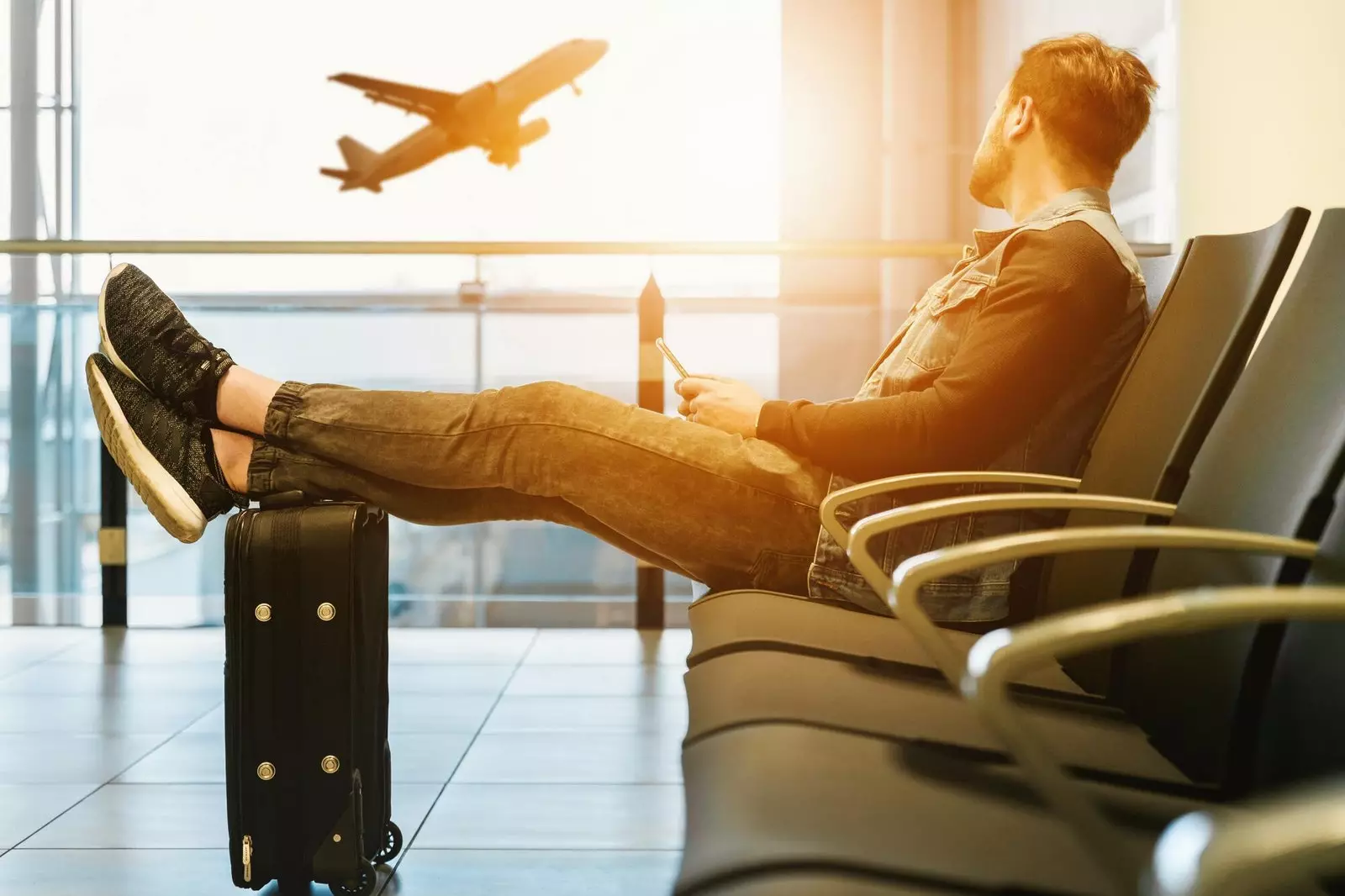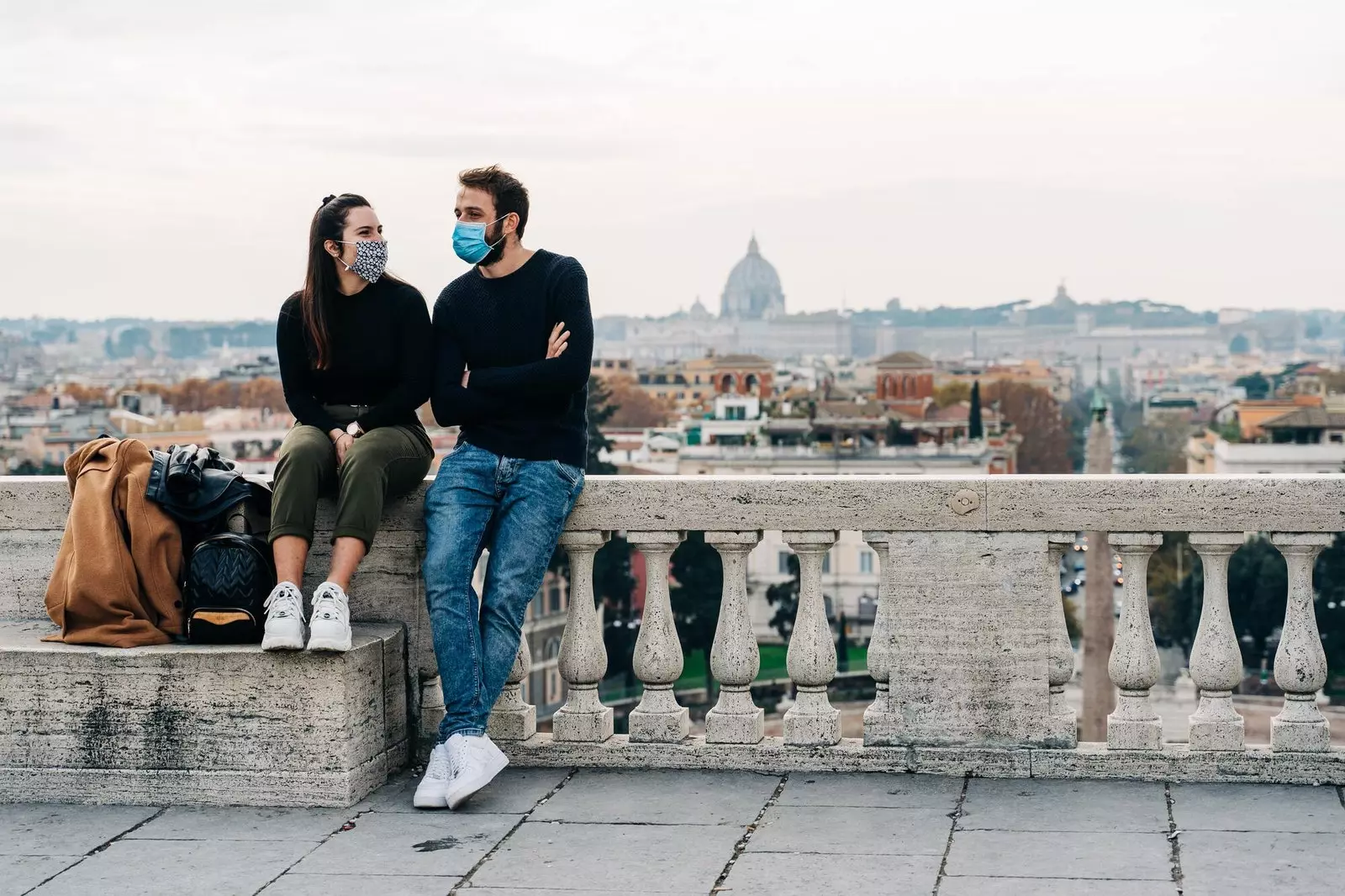This past July 1, the famous COVID certificate was already put into circulation , a document that we now treat as if it were Frodo's precious ring, and that is that it is our key to making one of the things we like the most: to travel.
Precisely now we find ourselves mired in moments of uncertainty in which it is beginning to be approved as documentation to access places of leisure . But while final decisions are being made, there are already many countries that live with this new lifestyle.
We already know that the COVID certificate is necessary to travel, but if we make a getaway this Christmas, What else do we need it for? Can we travel to any European country? These are the measurements of the most popular tourist destinations , both to enter their borders and to live in them for a few days.

This is what you need to know to choose your next destination.
PORTUGAL
Contrary to what we would like, Portugal has tightened its restrictions, decreeing the “state of calamity” until March 20.
The good news is that we can keep our travel plans to the neighboring country, but the measures have changed. If we decide to arrive by plane , we will need our vaccination certificate. However, from today until January 9, a negative test (PCR or antigen) will also be mandatory . The only ones who get rid of this second step are those who have a COVID certificate in recovery mode.
If our arrival in the country is by land, our COVID certificate in any of its modalities would be our ticket in. But you have to be attentive to the weekly update of the list of countries and autonomous communities at risk . If we come from a community at risk (red or dark red), we must also present a negative test.
Once there, we must not release our certificate if we want access to restaurants, hotels, events with individually reserved places, nightclubs and bars and gyms . And in the case of wanting to enter a healthcare facility or events without seating previously marked, a negative test will also be necessary.
FRANCE
Initially, traveling to France should not be a problem if we are vaccinated. The required documentation is our COVID certificate and a statement (downloadable on the Ministry website) in which we affirm that we do not present symptoms and that we have not had contact with any positive. For people who are not yet vaccinated and who come from Spain, will need a negative test within 72 hours prior to travel.
Until then, nothing new. Nevertheless, from December 15 , the rules change. People over 65 years , as well as those that are vaccinated with Janssen , they must have the booster dose to be able to enter the country and so that your health passport is not deactivated.
What happens when we get to France? In the country, the certificate It has been used since summer for access to events. At first, it was only necessary for shows and entertainment venues with more than 1,000 people, but since July 21, that number has dropped to 50 people.
It was from August 9 when his role became more notable. Since then, the certificate is required to access cafeterias, restaurants, shopping centers, hospitals, nursing homes and medical-social centers . And if you plan to move from the city once there, you should know that it is also necessary to travel by plane, train or bus in the case of long journeys.

Not only to travel, in France you will need your certificate for cultural activities.
UK
For our UK trips, those vaccinated will need their COVID certificate , but also a PCR for the second day after arrival . That is, we will have to remain isolated for two days and until our test is negative, that is when we will be allowed to leave.
For those who are not vaccinated, the measures are stricter. A PCR or antigen test 72 hours before the trip and, in addition, two other PCR tests on his second and eighth day after his arrival, in the ten-day mandatory quarantine period.
As for leisure, The United Kingdom does not intend, for the time being, to implement measures or the obligation to present the COVID certificate for access. Thus, the only thing we must be clear about are the entry requirements.
ITALY
Italy is one of our favorite destinations, to travel at Christmas and always. To enter the country, whether by plane, ship or road , we will need to present our COVID certificate, a cure certificate or a negative PCR result carried out 48 hours before, in addition to filling out a digital location form.
Because the situation there started to get worse again, since August 6, the COVID certificate is also necessary in Italy to restaurants, cultural or sporting events, museums, exhibitions, nightclubs or cultural centers . Failing this, a negative antigen test is also valid.
On September 1, they added restrictions to this list. The certificate would also be necessary for means of transport on long journeys . But fearful of the upcoming dates, this Christmas they have tightened the measures, so if you travel to Italy you should know that, between December 6 and January 15 , it will also be essential (apart from those already mentioned) to access hotels and use urban or intercity means of transport.

Italy tightens its measures for this Christmas.
GERMANY
Germany is another of the countries that maintain the operation of the certificate for other activities, apart from traveling. To enter from Spain, we need the COVID certificate in any of its modalities, or a negative test . So far, no surprises.
For our days within its borders, we must know that the rules change according to the federated state. They have three modes: 3G, 2G and 2G+ . All of them apply for access to public buildings, entertainment venues, restaurants, bars, sports facilities or public transport.
In the case of the 3G standard, we will be allowed the vaccination certificate, cure or a test . The 2G standard only supports the vaccination or healing certificate , and as for the 2G+ standard, it is required a test in addition to the certificate . This will also depend on each establishment in the city where we are.
DENMARK
There are not a few people who take advantage of the cold in their favor, that is, if we are cold, let's do it right. That's when they pack their bags and head to the Nordic countries. In this case, Denmark is usually one of the most popular destinations. What do we need to enter?
If we are vaccinated, the requirement is our COVID certificate , as in the rest of destinations. If we have recently been infected, a positive PCR carried out more than 14 days ago but less than 12 months ago. If we do not comply with either of these two options, the country will ask us a negative test done in the previous 24 hours upon our arrival.
Once there, we will need our certificate to access to restaurants, cafes, bars, museums, theaters, cultural events and nightlife.

Antigen tests in Greece will be done randomly.
GREECE
In the case of Greece, its regulations do not vary excessively from those of the rest of the countries, although there are some novelties that you should know. The passenger location form is mandatory for everyone. Besides, to enter the country we will need a negative PCR carried out in the previous 72 hours, a negative antigen result in the previous 48 hours, our vaccination certificate or a positive test or recovery certificate in the event that we have been infected little bit.
To move within the country , we will also need to prove some of the previous options. But also, regardless of whether we demonstrate our state of health in any of these ways, you should know that in Greece they have the authority to do rapid antigen tests randomly and they may not let you in if you refuse.
In the case of a negative, everything continues normally. In the case of a positive, he will undergo a PCR and if the result is repeated, will be required to keep ten days of quarantine.
Our vaccination certificate will also be essential if, once there, we want to access shops, hotels, restaurants, cafes and other public spaces.
